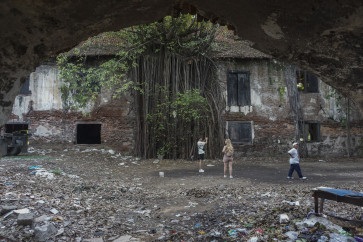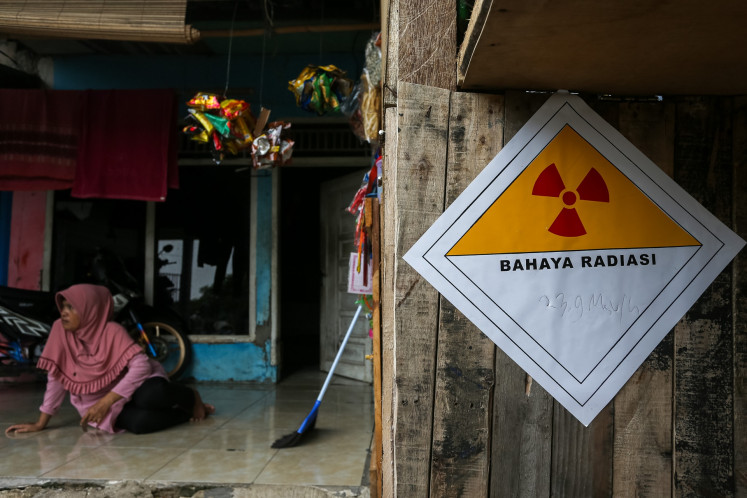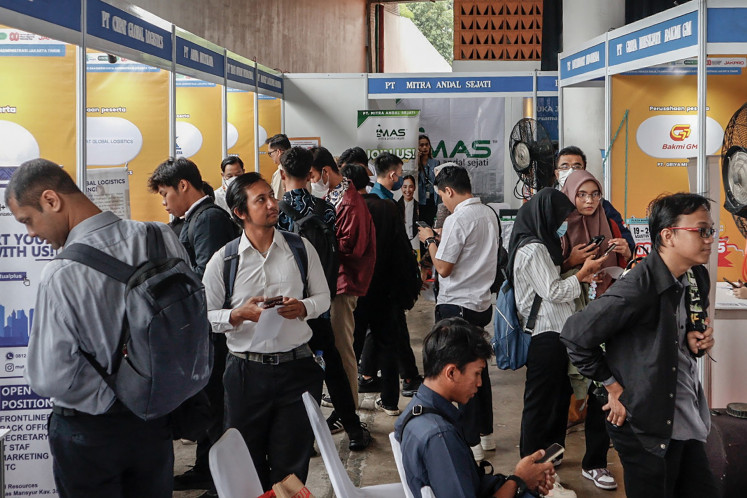Popular Reads
Top Results
Can't find what you're looking for?
View all search resultsPopular Reads
Top Results
Can't find what you're looking for?
View all search resultsProtectionism on the rise under Jokowi
Unlike in the past, where economic hardship produced good policies, Indonesia has recently taken protectionist measures to cope with slower growth, a move that will ultimately hurt consumers as well as businesses, an Australian think tank says in its latest report
Change text size
Gift Premium Articles
to Anyone
U
nlike in the past, where economic hardship produced good policies, Indonesia has recently taken protectionist measures to cope with slower growth, a move that will ultimately hurt consumers as well as businesses, an Australian think tank says in its latest report.
The precedent for the current protectionist policies was seen during the leadership of former president Susilo Bambang Yudhoyono through policies like a raw mineral export ban and enactment of import licenses following the 2008 and 2009 global financial crisis.
This continues under the new President Joko 'Jokowi' Widodo administration through the introduction of increased local content requirements for smart phones and hand-held devices, restriction of alcoholic-drink retail sales, reduced beef imports and the latest raising of import duties on a wide range of manufactured goods, according to the report launched on Thursday by Sydney-based Lowy Institute for International Policy.
'Declining commodity prices, prolonged sluggish growth in the global economy and tough competition with other low-cost producers are likely to add pressure on Indonesia to introduce interventionist policies. In addition, past reforms that have lowered tariffs and increased foreign direct investment (FDI) might have further pressured the government to support domestic entrepreneurs to develop industries,' said Arianto Patunru and Sjamsu Rahardja in the report titled 'Trade protectionism in Indonesia: Bad times and bad policy'.
After enjoying robust growth over the past few years, Indonesia's economy expanded by 5 percent in 2014, but this rate slowed to 4.7 percent in the first quarter of this year, the most sluggish pace in nearly six years. Surging direct investment, the second biggest contributor to growth, is the sole element expected to spur as domestic consumption weakens and exports, which mainly comprise of commodities such as palm oil and coal, fall with lower global prices.
Comparing the ways the Southeast Asia's biggest economy has responded to crises, the report pointed out that following a decline in oil revenue in the 1980s, the government enacted broad-based economic reforms to boost industrial development, while at the end of the 1990s, it also adopted a series of economic reforms to get out of the Asian financial crisis as demanded by the International Monetary Fund (IMF).
However, during worldwide financial woes in late 2008, it responded to the challenge through what the report describes as 'bad policies'.
'In the past we were pushed to open up. Otherwise, we could not tap into the opportunities available in the global market. However, we've seen that despite our openness, our industry is yet to develop well and now we need to take time to improve the domestic manufacturing sector,' Gusmardi Bustami, the international trade advisor to the trade minister, told The Jakarta Post.
The government has pledged massive development of infrastructure to help spur growth, enabling it to expand by more than 7 percent annually by 2019.
Indonesian Institute of Sciences (LIPI) economist Latif Adam underlined that the dubbed 'trade protectionist policies' should be seen in relation to other countries, as many have also taken more restrictive measures to protect jobs amid the current worldwide slowdown.










